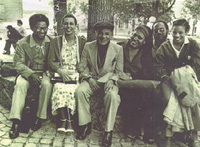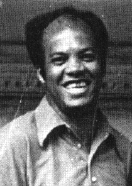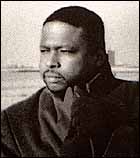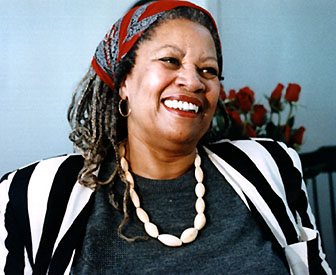|
|
|
|
||||
Mystically inclined black writers and intellectuals found affinity for hoodoo not only because it allows us to utilize a magical/metaphysical tradition buried deep in the black psyche and worldview but because it also allows us to perform the function of tribal shamain a contemporary manifestation. |
|
Its most revered figures have all been culturally engaged. Creating the visions without which the people shall perish and serving in its mythic heart its ageold griotic function of keeping the culture alive and viable
|
||||
|
Marcus Garvey was highly influenced by Ethiopia Unbound by Casely Hayford, from which he took, among others, the phrase, One God! One Aim! One Destiny! In turn Marcus Garvey influenced thousands and thousands of blackfolk, thereby influencing the historical dynamics of his times and our destiny for the foreseeable future. |
|
|
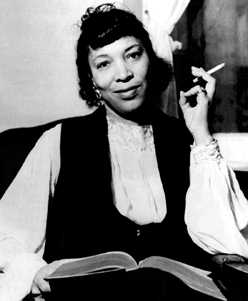 |
Consciously griotic, AfricanAmerican literature is passionately concerned with cultural custodianship.As the voice of a culture that has since its inception felt itself under mortal siege, African American literature is fundamentally shamanistic and vitally concerned with communal health and empowerment.Those of us who consider ourselves trained cultural custodians and masters of Nommo - a Dogon dogstar word - the ability to use the magic of words to forge reality - have consciously decided to contribute our lifeworks to the viability of that culture and to defend it against those who would destroy or cripple it. Within or without. |
|
ideological orchestrators - artists and intellectuals who enlist themselves in the ideological wars. an ongoing struggle amongst the players of different systems and cultures for dominance over the way the world thinks and the future of the humanrace. master game players who count their game in generations, centuries and eras historical tools of ideological orchestration:
religion, science, ideas, education, literature art and magic; ideological orchestration requires mastery of the longgame: you do your communitny service/activism because
you always do what you can the battles over gangster rap and mercenary
literature are battles for the control of our cultural traits. destinywork |
|
|
afroam literature is working literature. it is conjurational lit and at its best visionary.as such it continues to address the critical issues that concern
us as artists and as a people. mix in the commercialization and canonization
of african american literature and bring to a boil.
|
|
periods of political ferment have been accompanied by literary movements the harlem renaissance was the voice of the new negro and the great migration which transformed a rural peasantry to an urban 20th century people. The black arts/aesthetic movement was the voice of the civil rights movement and black power which turned away from addressing white audiences to addressing black audiences and concerns - a crossroads moment |
| The judgement of any literary movement is the quality of the works produced by it. The issues raised pertinent to its generations. The ideological instruments forged to finesse its challenges. Its influence on future literary work. Its legacy. |
|
I aspire to works so powerful that I cannot be ignored immortality |
|
| In a 1973 New York Times Book Review of Sula, the reviewer call herself warning Toni not to be too colored, said if Toni doesnt restrict herself to colored topics she might make something of herself one day. That she might then "transcend that early and unintentionally limiting classification 'black woman writer'." |
|
|
"She really do some powerful healing, though. And she ain't a root doctor neither. She don't need no root to heal. Some people say that that is a superior form of healing when you don't need no root to heal. When you just healing people by knowing that they is healed." gayle jones: the healing |
|
|


